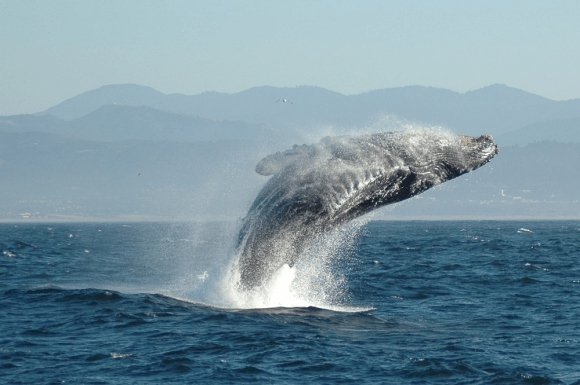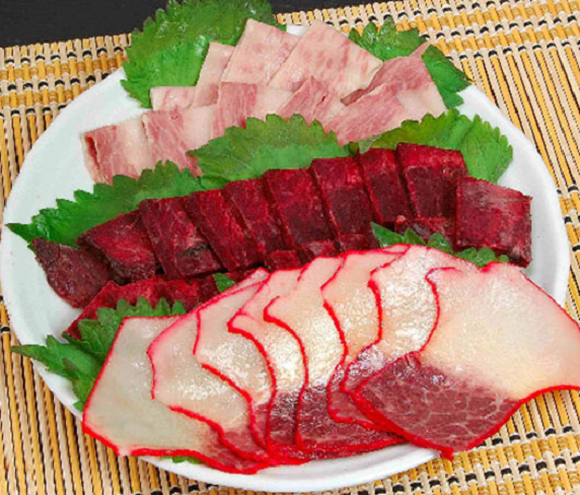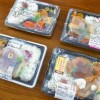
If you hail from one of the many developed nations that comprehensively frowns on the practice of whaling, you may have the image that an appalling number of people in Japan eat whale meat. And while that may be true in relative terms compared to extremely low number of people who regularly eat whale meat in several parts of North America and Europe, whaling can be a divisive topic even within Japan. Some Japanese have no problem with dining on whale from time to time, treating it like just a meatier, gamier fish. Others think eating whale is a custom that’s long past its time and needs to be rethought.
To get a preliminary understanding of some of the many different opinions on the issue that exist in the country, we interviewed a number of Japanese people and asked them whether they were in favor of or opposed to whaling and eating whale meat.
Respondent 1: Woman, 30s, opposed to whaling
“In the past, whaling was a part of Japanese culture, but, because of reasons such as the reduced whale populations, I believe the situation has changed in the modern era, and so restrictions are needed.
However, the attacks carried out by Sea Shepherd on Japanese whaling ships are close to terrorism, and I don’t think such actions are acceptable. Countries other than Japan used to engage in whaling, but after extracting the whale oil, they destroyed the animal’s carcass. But even though long ago there was no custom of eating cows or pigs in Japan, whalers didn’t just extract oil [and throw the rest away]; they would eat the whale’s meat, powder its bones to use as fertilizer, and even make use of the skin and baleen, so that nothing was wasted. Not only that, to show appreciation for the precious natural resource that whales were, in some parts of Japan they would enshrine the whales’ spirits.
I would like those Europeans and North Americans who know nothing of these aspects of Japanese culture, yet criticize the country by saying ‘Whaling is bad!’, to understand these things.”
Respondent 2: Male, 20s, in support of whaling
“Eating whale meat is a part of Japanese culture, and I think it would be strange to give up a part of our culture because other countries tell us to stop doing something. There are cultures in the world where dogs and cats are eaten. That’s difficult for someone like me, who loves those animals, to accept, but I don’t use that as a reason to deny their culture or tell them to give up a part of it. Culture is culture. Cultural differences are something we should accept, not something we should deny.
Among the criticisms people make of whaling is ‘Whales are intelligent creatures, so I feel sorry for them,’ but are they saying that cows and pigs are unintelligent, stupid animals? I don’t feel that way. Humans should respect all animals, and treat the sacrifice of their lives with dignity deserving of the fact that it lets us go on living. That’s something very important, and I can’t see any reason to treat whales like they’re special compared to other animals.
Also, some people say that whaling is bringing whale populations to the brink of a crisis, but, to my knowledge, some types of whales are endangered, and others are a thriving natural resource. It is confirmed that only whales from the non-endangered group, and only the number of animals necessary for research purposes, are procured by Japanese groups. If this were an outright lie, and the whales procured in the name of research were bringing the species to the brink of a crisis, then I think whaling should be immediately stopped. But until I am presented with documentation proving that, I am in favor of whaling and eating whale meat.’
Respondent 3: Male, 30s, opposed to whaling
“I can live my life just fine without eating whale, so there’s no need to go eating it in the face of so much criticism.”
Respondent 4: Male, 30s, in favor of whaling
“I recognize that eating whale was a part of ancient Japanese culture. I am afraid that as many fields are becoming more globalized, we are in danger of losing many aspects of our culture. So that the Japanese whale-eating culture will not disappear, and so that future generations can inherit this custom, I think whaling should be continued, even if on a small scale.”
Respondent 5: Woman, 30s, undecided
“I don’t have any personal desire to eat whale, but, if other people want to eat it that’s fine. But if I had to pick a side, I would probably say I’m closer to being opposed to whaling.
But, I think that those who are against whaling should reconsider the one-sided criticisms of the practice in Japan. Wouldn’t it be more convincing, and potentially influence a greater number of people, to adopt a more bilaterally communicative posture (like in Aesop’s The North Wind and the Sun)?
I love cats, so the custom of eating cats in China and Switzerland makes me painfully sad. So, I really can understand those who stand up and shout ‘Whaling is wrong!’ But two-way communication, persuasion, alternate solutions, and thinking about your counterpart’s position are all tactics I would like the whaling opposition movement to adopt.”
As you can see, we talked with five different people, and got five different answers. It’s a safe bet that there are many more stances out there among the roughly 125 million people in Japan, since not just people from different parts of the world, but sometimes even those from the same country, can see the same issue in very different ways.
Top image: Wikipedia/Zorankovacevic
Insert image: Sakana Shop


 Japanese film “Behind THE COVE” defends whaling and dolphin-hunting, screens in the U.S.【Video】
Japanese film “Behind THE COVE” defends whaling and dolphin-hunting, screens in the U.S.【Video】 Moby Drink: Iceland creates a beer made with endangered whale bones, can’t sell it
Moby Drink: Iceland creates a beer made with endangered whale bones, can’t sell it Oregon as a Studio Ghibli film – Gorgeous tourism video shows the state as a Miyazaki wonderland
Oregon as a Studio Ghibli film – Gorgeous tourism video shows the state as a Miyazaki wonderland Godzilla? Japanese news broadcast reports “giant creature” in Tokyo Harbor
Godzilla? Japanese news broadcast reports “giant creature” in Tokyo Harbor We steel our hearts and sample Namikoshiken’s too-cute-to-eat, aquarium-themed wagashi sweets
We steel our hearts and sample Namikoshiken’s too-cute-to-eat, aquarium-themed wagashi sweets Seaside scenery, history, and so many desserts on Yokohama’s Akai Kutsu【Japan Loop Buses】
Seaside scenery, history, and so many desserts on Yokohama’s Akai Kutsu【Japan Loop Buses】 Foreigner’s request for help in Tokyo makes us sad for the state of society
Foreigner’s request for help in Tokyo makes us sad for the state of society Japan’s summertime towelket pillowcases are even better with the addition of Ghibli stars【Photos】
Japan’s summertime towelket pillowcases are even better with the addition of Ghibli stars【Photos】 Japanese city loses residents’ personal data, which was on paper being transported on a windy day
Japanese city loses residents’ personal data, which was on paper being transported on a windy day Do Hi-Chew-flavor Hi-Chews have a reason to exist?【Taste test】
Do Hi-Chew-flavor Hi-Chews have a reason to exist?【Taste test】 We test Daiso’s new storage container to see if it keeps rice fluffy even after freezing
We test Daiso’s new storage container to see if it keeps rice fluffy even after freezing Suicide cakes – Sweets to die for
Suicide cakes – Sweets to die for We taste makunouchi bento at four Japanese convenience store chains【Taste comparison】
We taste makunouchi bento at four Japanese convenience store chains【Taste comparison】 Japanese woman stumbles on the power of the infamous “gaijin seat” phenomenon during flight
Japanese woman stumbles on the power of the infamous “gaijin seat” phenomenon during flight Akihabara pop-up shop sells goods made by Japanese prison inmates
Akihabara pop-up shop sells goods made by Japanese prison inmates McDonald’s new Happy Meals offer up cute and practical Sanrio lifestyle goods
McDonald’s new Happy Meals offer up cute and practical Sanrio lifestyle goods Japanese ramen restaurants under pressure from new yen banknotes
Japanese ramen restaurants under pressure from new yen banknotes French Fries Bread in Tokyo’s Shibuya becomes a hit on social media
French Fries Bread in Tokyo’s Shibuya becomes a hit on social media Studio Ghibli releases new action figures featuring Nausicaä of the Valley of the Wind characters
Studio Ghibli releases new action figures featuring Nausicaä of the Valley of the Wind characters Red light district sushi restaurant in Tokyo shows us just how wrong we were about it
Red light district sushi restaurant in Tokyo shows us just how wrong we were about it New private rooms on Tokaido Shinkansen change the way we travel from Tokyo to Kyoto
New private rooms on Tokaido Shinkansen change the way we travel from Tokyo to Kyoto Tokyo Tsukiji fish market site to be redeveloped with 50,000-seat stadium, hotel, shopping center
Tokyo Tsukiji fish market site to be redeveloped with 50,000-seat stadium, hotel, shopping center Beautiful Ghibli sealing wax kits let you create accessories and elegant letter decorations【Pics】
Beautiful Ghibli sealing wax kits let you create accessories and elegant letter decorations【Pics】 Studio Ghibli releases Kiki’s Delivery Service chocolate cake pouches in Japan
Studio Ghibli releases Kiki’s Delivery Service chocolate cake pouches in Japan New definition of “Japanese whiskey” goes into effect to prevent fakes from fooling overseas buyers
New definition of “Japanese whiskey” goes into effect to prevent fakes from fooling overseas buyers Our Japanese reporter visits Costco in the U.S., finds super American and very Japanese things
Our Japanese reporter visits Costco in the U.S., finds super American and very Japanese things All-you-can-drink Starbucks and amazing views part of Tokyo’s new 170 meter-high sky lounge
All-you-can-drink Starbucks and amazing views part of Tokyo’s new 170 meter-high sky lounge More foreign tourists than ever before in history visited Japan last month
More foreign tourists than ever before in history visited Japan last month New Pokémon cakes let you eat your way through Pikachu and all the Eevee evolutions
New Pokémon cakes let you eat your way through Pikachu and all the Eevee evolutions Disney princesses get official manga makeovers for Manga Princess Cafe opening in Tokyo
Disney princesses get official manga makeovers for Manga Princess Cafe opening in Tokyo Sales of Japan’s most convenient train ticket/shopping payment cards suspended indefinitely
Sales of Japan’s most convenient train ticket/shopping payment cards suspended indefinitely Sold-out Studio Ghibli desktop humidifiers are back so Totoro can help you through the dry season
Sold-out Studio Ghibli desktop humidifiers are back so Totoro can help you through the dry season Japanese government to make first change to romanization spelling rules since the 1950s
Japanese government to make first change to romanization spelling rules since the 1950s Ghibli founders Toshio Suzuki and Hayao Miyazaki contribute to Japanese whisky Totoro label design
Ghibli founders Toshio Suzuki and Hayao Miyazaki contribute to Japanese whisky Totoro label design Doraemon found buried at sea as scene from 1993 anime becomes real life【Photos】
Doraemon found buried at sea as scene from 1993 anime becomes real life【Photos】 Tokyo’s most famous Starbucks is closed
Tokyo’s most famous Starbucks is closed One Piece characters’ nationalities revealed, but fans have mixed opinions
One Piece characters’ nationalities revealed, but fans have mixed opinions We asked a Uniqlo employee what four things we should buy and their suggestions didn’t disappoint
We asked a Uniqlo employee what four things we should buy and their suggestions didn’t disappoint Princesses, fruits, and blacksmiths: Study reveals the 30 most unusual family names in Japan
Princesses, fruits, and blacksmiths: Study reveals the 30 most unusual family names in Japan Get a taste of Japan’s past NOW, with these retro snacks and sweets at Tokyo department store
Get a taste of Japan’s past NOW, with these retro snacks and sweets at Tokyo department store Starbucks Reserve Roastery sells lucky Japanese figurines to ring in 2023
Starbucks Reserve Roastery sells lucky Japanese figurines to ring in 2023 Japanese company raises awareness of child organ transplants by giving old toys donated limbs
Japanese company raises awareness of child organ transplants by giving old toys donated limbs Students at Tokyo University of the Arts create amazing festival shrines of giant monsters 【Pics】
Students at Tokyo University of the Arts create amazing festival shrines of giant monsters 【Pics】 Fukuoka amusement park draws anger for skating atop 5,000 sea creatures frozen in ice
Fukuoka amusement park draws anger for skating atop 5,000 sea creatures frozen in ice Searching ‘Japan’ on Google Images in 17 different countries (Korea’s results? Just plain weird)
Searching ‘Japan’ on Google Images in 17 different countries (Korea’s results? Just plain weird) Ah, isn’t that cute? This rice omelet thinks it’s a corgi!
Ah, isn’t that cute? This rice omelet thinks it’s a corgi! Survey reveals that Australian people trust Japan and Prime Minister Abe to act responsibly
Survey reveals that Australian people trust Japan and Prime Minister Abe to act responsibly Japanese sweets maker’s edible zoo and aquarium is filled with creatures almost too cute to eat!
Japanese sweets maker’s edible zoo and aquarium is filled with creatures almost too cute to eat! These adorable animal cakes may be too cute to eat, but we’ll still try!【Photos】
These adorable animal cakes may be too cute to eat, but we’ll still try!【Photos】 How drunk can Awamori Jelly infused with liquor from Okinawa make us?
How drunk can Awamori Jelly infused with liquor from Okinawa make us? You can’t miss this amazing footage of a diver swimming in harmony with a giant whale shark
You can’t miss this amazing footage of a diver swimming in harmony with a giant whale shark Tokyo’s super-secret-location sushi restaurant has a stand-up sister shop that’s open to all
Tokyo’s super-secret-location sushi restaurant has a stand-up sister shop that’s open to all Wakayama man stealing uniform from school caught by mysterious man in restroom in middle of night
Wakayama man stealing uniform from school caught by mysterious man in restroom in middle of night Student creates captivating display of “floating whales” to symbolise Buddhism’s Six Realms
Student creates captivating display of “floating whales” to symbolise Buddhism’s Six Realms What should Tokyo’s newest rail station be called? Poll asks high school girls for their opinion
What should Tokyo’s newest rail station be called? Poll asks high school girls for their opinion
Leave a Reply